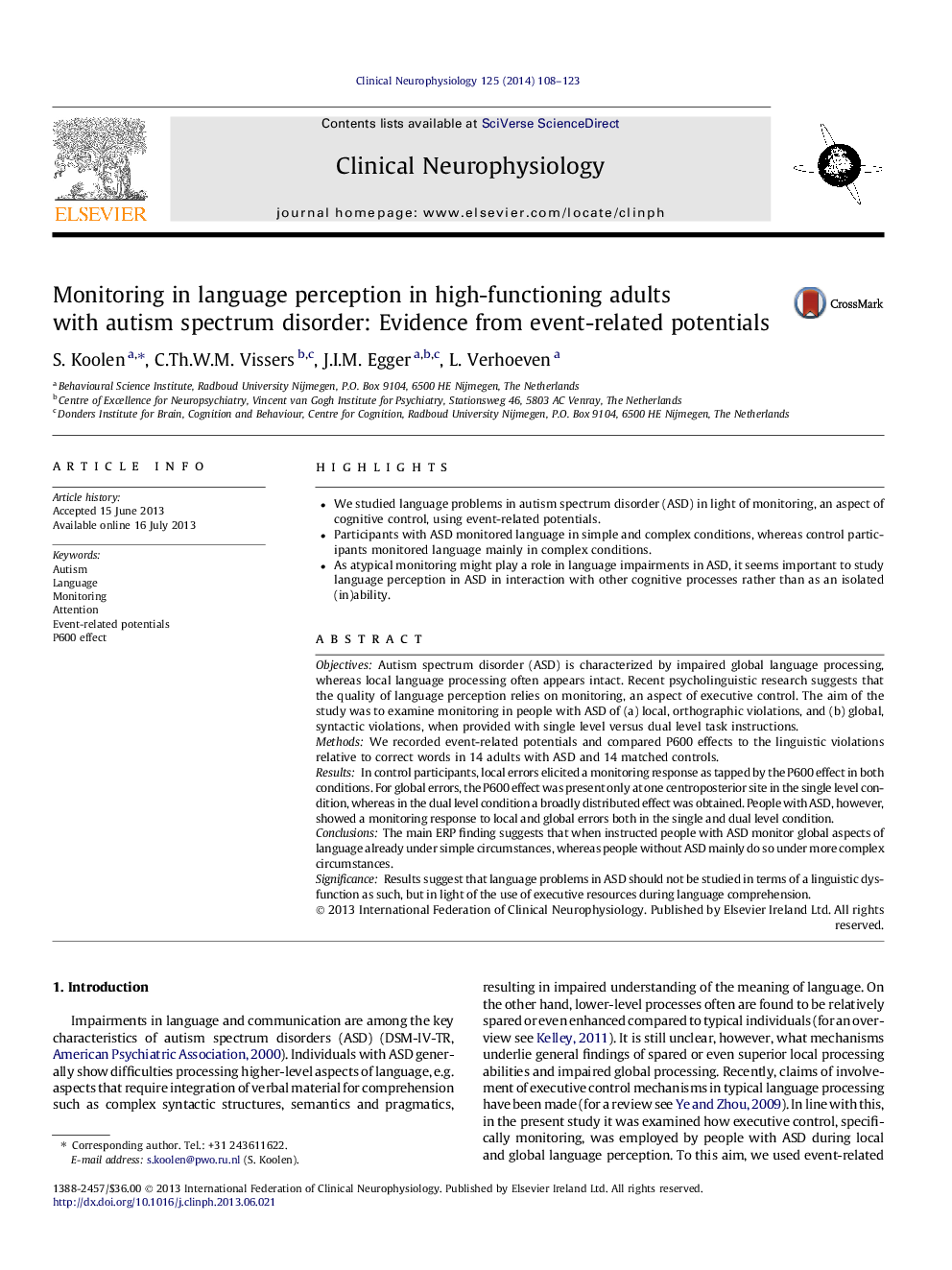| Article ID | Journal | Published Year | Pages | File Type |
|---|---|---|---|---|
| 3043639 | Clinical Neurophysiology | 2014 | 16 Pages |
•We studied language problems in autism spectrum disorder (ASD) in light of monitoring, an aspect of cognitive control, using event-related potentials.•Participants with ASD monitored language in simple and complex conditions, whereas control participants monitored language mainly in complex conditions.•As atypical monitoring might play a role in language impairments in ASD, it seems important to study language perception in ASD in interaction with other cognitive processes rather than as an isolated (in)ability.
ObjectivesAutism spectrum disorder (ASD) is characterized by impaired global language processing, whereas local language processing often appears intact. Recent psycholinguistic research suggests that the quality of language perception relies on monitoring, an aspect of executive control. The aim of the study was to examine monitoring in people with ASD of (a) local, orthographic violations, and (b) global, syntactic violations, when provided with single level versus dual level task instructions.MethodsWe recorded event-related potentials and compared P600 effects to the linguistic violations relative to correct words in 14 adults with ASD and 14 matched controls.ResultsIn control participants, local errors elicited a monitoring response as tapped by the P600 effect in both conditions. For global errors, the P600 effect was present only at one centroposterior site in the single level condition, whereas in the dual level condition a broadly distributed effect was obtained. People with ASD, however, showed a monitoring response to local and global errors both in the single and dual level condition.ConclusionsThe main ERP finding suggests that when instructed people with ASD monitor global aspects of language already under simple circumstances, whereas people without ASD mainly do so under more complex circumstances.SignificanceResults suggest that language problems in ASD should not be studied in terms of a linguistic dysfunction as such, but in light of the use of executive resources during language comprehension.
